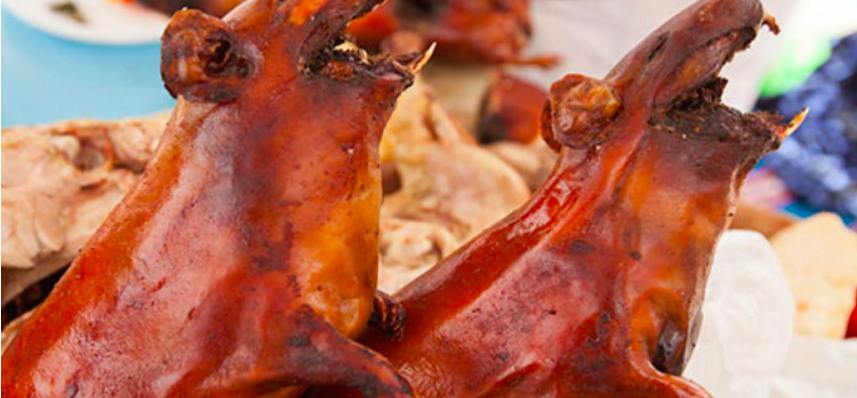
In Peru and in other Andean countries, they eat cuy or Guinea pig. Photo: Radio Ambulante.
In Peru, you’re allowed to criticize everything, except for the food. Radio Ambulante [1]executive producer Daniel Alarcón traveled to his native Peru to talk with two people who dared to insult Peruvian cuisine. An edited version of the story, originally published [2] on Radio Ambulante's website titled “Against Peruvian Food”, appears below.
Simple. Practical. Easy. If you’re Peruvian and you live abroad, like I do, then this is something that usually happens to you: you mention your country, and after name-dropping Machu Picchu, people immediately talk about the food.
It happens all the time. Now you can find Peruvian restaurants in every major European city. Tourists from the United States travel to Peru just to visit the new chic restaurants in the capital. In Lima, there are more culinary schools than in Paris, and chefs are even interviewed by the local press about their opinions on politics, the economy, and the culture. I’m not exaggerating. A few years ago, I visited a maximum security prison, and to my surprise, I found that one of the prisoners had opened a gourmet restaurant. I remember the chef told me that his dream was for people on the outside to come to the prison to try his food. For him, that would be success.
Anyway, that is the situation. But there’s another aspect to this reality, something that has become very clear to me. If anyone speaks ill about our food, we don’t always respond that well.
We’ll take a look at two cases and get to know the two people that dared to insult Peruvian cuisine, because I think it reveals something about our idiosyncrasies, and because I think it shows that maybe, something has changed. And so that no one accuses me of not having enough national pride, let’s start by getting one thing clear: I love Peruvian food.
Three years ago in Lima, a book called “Cocinero en su tinta” was published. The author, Gustavo Rodriguez, also works as a communications consultant. Hence, he knows a lot about marketing. In the case of his novel, the publisher had decided to sell it as the first Peruvian novel dedicated to our cuisine, something he didn’t appreciate at all.
“It was a silly way of pigeonholing it because my book isn’t about that,” Gustavo says.
But it makes sense in a way, doesn’t it? The main character is a chef. So if that detail is nothing more than a pretense for telling a more intimate story, in terms of marketing, it made sense. And well, the press release from the publisher found its way into the hands of another author: Peruvian writer and blogger Iván Thays, who lives in Lima.
At the time, Ivan wrote a literary blog for the Spanish newspaper El Pais, and he wrote a post — “not because of the book, which I hadn't read yet” — exploring the fascination with Peruvian cuisine and “how much time should have to pass before a new phenomenon could become literature.”
But aside from that literary and theoretical question in his post, Iván confessed something very serious: he didn’t like Peruvian food that much. And he didn’t say it in the nicest way either.
“I said a lot of things that sounded pretty bad such as being unable to digest Peruvian food, that it was a bomb of carbohydrates, that I liked Italian food a lot more in general, and that I didn’t think Peruvian food was out of this world by any means.” Iván says.
And that he wasn’t even thankful for this supposed gastronomic boom. The next day, the post had comments from about 20 people and some likes. Gustavo also saw it because Iván had tagged him in a note on Facebook. Both didn't think much of it.
But while Gustavo was on a flight from Bogotá to Lima, everything changed. El Comercio, a newspaper in Lima, had published a link to the blog with an alarming headline: “Peruvian writer in Spain says that Peruvian cuisine is bad.” El Comercio is the most important and most read newspaper in Peru, and with this blog, Iván and his comments on Peruvian food became news. Many also interpreted his comments as a critique on Gustavo’s book, and therefore, the author saw himself get involved in this mess.
“So there I realized that what I had said was going to be taken much more seriously than what it really meant to me, you know?” says Iván.
And the media storm began.
Continue listening to the story with English subtitles below (beginning at 5:50) to learn how the ordeal ended and how another man experienced a very different public reaction a few years later when he made fun of Peruvian food:
Or listen to the episode in Spanish below: